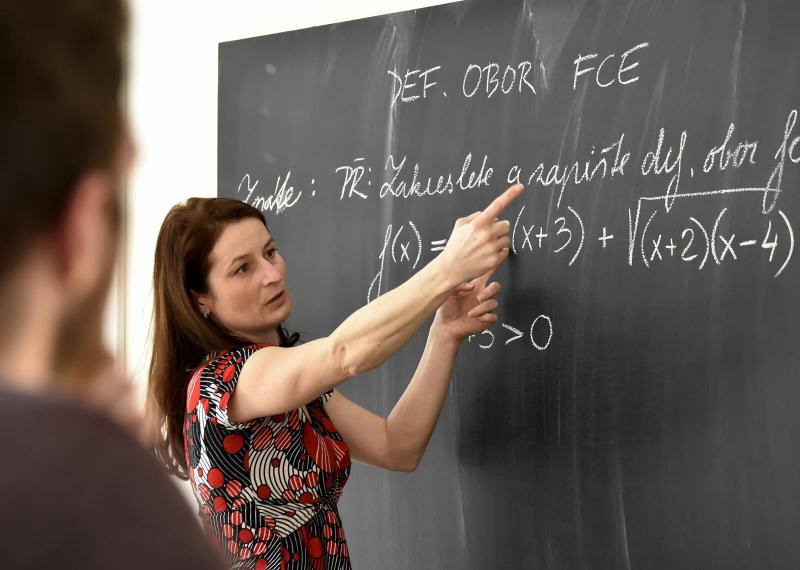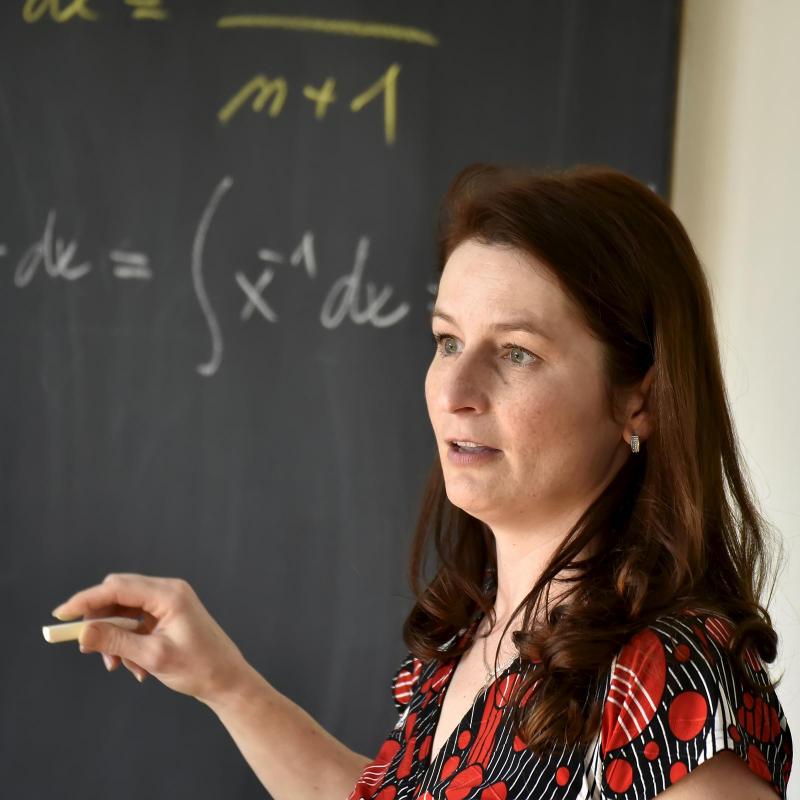People
Applied math is a huge help, but it need people who understand it deeply

Jana Hoderová studied teaching at the Faculty of Science of Masaryk University, to which she added Mathematical Engineering in the 4th year at the former Faculty of Mechanical Engineering at the BUT in Brno. It was then that the new field caught her eye and she has already remained loyal to it. She completed her doctoral studies as an assistant at the Department of Mathematics of the Faculty of Mechanical Engineering, BUT, and today, among other things, works there as a secretary for field studies. She will not say a bad word against the Brno University of Technology. She considers mathematics to be a basic building block for other disciplines and a powerful tool for predicting a number of complex processes. You just need to stick to critical thinking and take the human factor into account.
How long have you been teaching math?
Right after studying at the university, I was lucky enough to be employed at FME and therefore immediately started teaching. So, this year it will be 25 half-years since I've been teaching.
What or who brought you to mathematics and what role does it play in your life?
Mathematics has always been an obvious choice for me, although I was not lucky enough to have any excellent and inspiring teachers. Rather, I am grateful for all the help to my brother, who devoted himself to physics and was always at hand with advice.
Mathematics plays an absolutely essential role in my life. It decided my choice of university, it influenced my way of thinking. I have a job that I enjoy a lot, I have colleagues who are excellent in mathematics and also great in terms of people.
Are your students afraid of math at FME? Do you perceive a generational difference in your students' approach to mathematics?
I don't know if I would call it fear. Rather, some feel a healthy respect because they know they don't have a good foundation from elementary and high school, and it's hard to do higher math when you're struggling with fractions and parentheses. But I am of the opinion that if students are motivated and have chosen our faculty for a specific study programme, they will master the mathematics that is the basis for all other technical subjects. They just have to want to and invest energy in preparation.
The generational difference in the approach to mathematics is visible at first glance. The availability of various conveniences, from the now self-evident online search anytime and anywhere to various mobile software that will calculate "something" for you if you just take a picture of "it", has unfortunately suppressed the ability of students to rely on their own heads. It's a terrible shame that students don't have more confidence in what knowledge is stored in their heads during education and they tend to keep looking for even basic things on their mobile phone or somewhere on paper.
The question about the generation gap may have gone a little further. In general, it is always said that today's students are worse than we used to be, but I always argue against that. They are not worse in any way, they are just different because they grow up in different conditions with different possibilities. I see students' potential above all. I envy them their energy, creativity, ability to see the solved task from a completely different point of view and find, for example, a new way to deal with the given task.
You teach mathematics at FME and at FCH. Is mathematics different for engineers and chemists?
In terms of content, the basic mathematics course in the 1st year is not fundamentally different. I perceive rather that the connection between higher mathematics and chemistry is not so clear for the students of the Faculty of Chemistry, which is why they have a lukewarm relationship to mathematics. Engineers see it more clearly. They simply cannot do without integrals and differential equations in technical subjects.
How would you motivate young people who are afraid of mathematics or believe that it will be of no use to them in life?
When studying at technical and science schools, it is impossible to function without mathematics. Mathematics is the basic building block for other fields. Without logical thinking, knowledge of the mathematical apparatus and the ability to use it to solve tasks, not only technical practice, you will not be able to cope with the problem being solved. It sounds like a cliché, but it's a stark reality. Mathematics is needed everywhere.
Can mathematics and its applications help solve current global problems, or do they, on the contrary, tend to complicate things in this regard?
The power of mathematics is in simulations. If you build the right mathematical model and set the right parameters, you can very well predict the development of a number of biological processes, for example, based on the input data. However, critical thinking and the human factor are still needed. A person can often intuitively assess that the solution offered by the software has a catch, deviates from reality and needs to be corrected. So applied mathematics is a huge help in solving a wide range of problems, but it needs people who understand it in depth and are in control of it.
Will you celebrate Maths Day?
Of course. Now that I know about Mathematics Day, I will definitely celebrate it. I suppose by work.
(kub)
Device is being developed at strojLAB that students hope will help them succeed in a prestigious biotechnology competition
Software as a bachelor thesis helps with soil erosion research
A special tribometer customised by Brno scientists for a Japanese company
Ceramics that glow. Young scientist wins award for research into new materials for lasers and X-rays
Heatman Marek Scholler transmits energy not only on stage